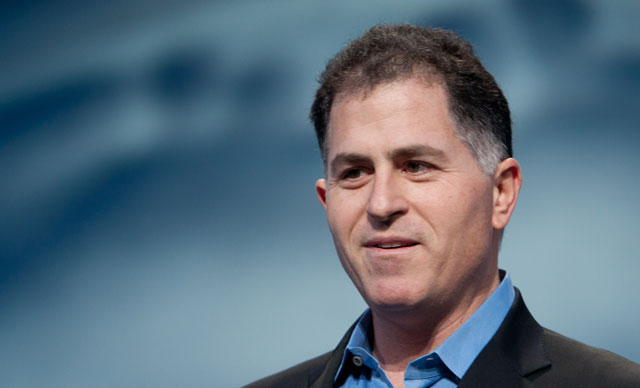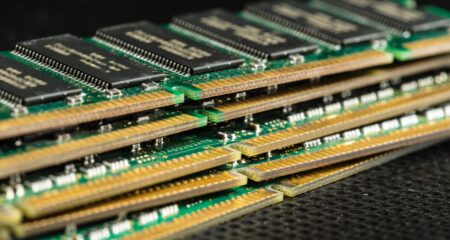 As one of the many perks of the oh-so-hard life of a technology journalist, I was flown to Las Vegas as a guest of EMC for its annual EMC World event earlier this month. Like all such events, this was a chance for the company to trumpet its products and strategy, while giving many of the world’s technical and business types a chance to mingle and syphon some insight from the frontline.
As one of the many perks of the oh-so-hard life of a technology journalist, I was flown to Las Vegas as a guest of EMC for its annual EMC World event earlier this month. Like all such events, this was a chance for the company to trumpet its products and strategy, while giving many of the world’s technical and business types a chance to mingle and syphon some insight from the frontline.
In fact, as much as writers like me get a lot out of events like this, the real targets are the partners. It’s the partners who ultimately will hustle and buy EMC’s family of data centre, storage, management, security and virtualisation products.
No convention is complete with a keynote, and EMC rolled out a double-whammy, first with outgoing EMC CEO Joe Tucci on stage to talk about the past and the pending merger with Dell, then Michael Dell himself — the PC-wunderkind-turned-buyout-maverick.
If you haven’t heard, Dell not only managed to pull his ailing company out of public hands, but then offered a staggering US$67Bn for EMC — effectively creating the biggest private technology company in the world.
It’s a great buy — few are as well positioned as EMC to tackle the cloud powered future. But I wasn’t surprised that Dell already had his copy of the script, talking about the exciting future of computing. He compared it to the industrial revolution, which is both apt and a little harrowing.
The technology industry likes talking about disruption, usually as something you’d want to lead from the front. But history clarifies disruption as less a careful sword stroke and more smashing down with a sledgehammer.
Take the industrial revolution: it may have changed the world, but it was also devastating. The forces behind it resulted in large job losses, mass migrations to cities, the near-desertion of the countryside, the collapse of the artisan industry, even laws that made child labour mandatory.
I don’t want to pooh-pooh the industrial revolution’s importance, but let’s get rid of this notion of a largely painless transition. It was anything but and, in some ways, we still carry that headache today.
But progress will happen and I find no fault with Dell’s comparison. Instead, I wonder if we understand the real impact of what’s happening here.
If you know a politician or someone in a position of influence, maybe bring them into the conversation — because they need to hear this. If we don’t do something about education now, we are screwed. And not better education, but an entire overhaul.
Cargo cult
To steal a concept from one of my fellow journalists on the trip, South Africa stands a real risk of becoming a technology cargo cult. The cargo cults were islands in the Pacific that became wholly reliant on goods imported by foreign ships. They didn’t innovate or grow; they simply consumed. You could say they leapfrogged into the modern age, just without any of the foundation required to thrive in that age.
Leapfrogging is a phrase often associated with African countries – and it’s always made to sound like a good thing. But is it? Our local entertainment is being absorbed by Netflix, our taxis by Uber, our maps by Google and our music stores by Apple. Look at China or India and that is not the case. They have competing services, some far bigger and tougher than the cargo pumped in via fibre from foreign countries.
Why aren’t we doing that? I can blame several elements, but we simply are not training people to embrace this new world. Today, if you wish to enter the IT world, you need to complete school and then get a degree. I’m not guessing: I’ve had executives lay that out for me. No varsity exposure, no entry to our nice mentorship programmes. In one executive’s words, people acquire a certain way of thinking in tertiary education and big companies want that.

Now Las Vegas is full of people who didn’t get degrees, and they are clearly being left behind. Those that did are straddled with incredible study debts. I had to pause and wonder that if the US, arguably the pinnacle of modern society, cannot facilitate effective and affordable education for the majority of its people, South Africa is up the creek without a boat.
The reality is that the modern office — the white-collar world — is the new factory floor that the industrial revolution ushered in. Once completing high school could get you onto a factory floor. Now a degree gets you onto the cubicle floor.
Life skills
Some may bay for the blood of big companies, but that’s foolish. Companies won’t change, and nor should they. That’s what globalised business is all about. Instead, I wonder why we waste the last five years of schooling on general subjects. Why are we not grabbing strong students at grade 7 and thrusting them headlong into technology courses? Teach life skills, like compound interest and how to knot a tie along the way, but get them going on technology.
Yes, some tracks require a well-rounded education, but I cannot imagine that you need 12 years of schooling plus three years of varsity to build webpages, connect fibre or make a mobile app. It’s outdated and, worse, very detrimental for countries such as ours.
We may need more people who can muster 12-grade trigonometry, but most students don’t need that in order to serve the more basic demands of technology. Raise your hands, all you techies who are so thankful you got that higher-grade maths and science marks. I know people who run IT shops very successfully but couldn’t find a Cartesian plane with a search engine.
Let’s end this education snobbery, get realistic and revive the trades of old. Instead of teaching spot welding and bricklaying, let’s teach basic programming, device repair, policy configuration. Because those are the skills that matter.
Michael Dell’s Industrial Revolution 2.0 is real, and if we don’t act it will crush us and turn South Africa into one of the 21st century’s beggar states.
- James Francis is a freelance writer whose work has appeared in several local and international publications




